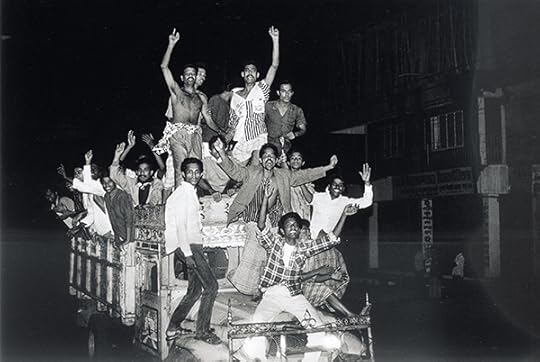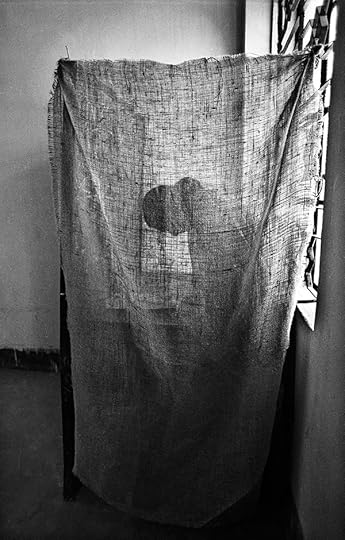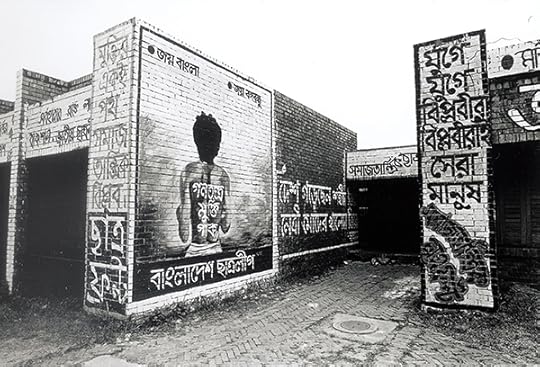Demanding Justice for Shahidul Alam
In Bangladesh, the brutal arrest of a prominent photographer incites an international outcry.
By Brian Palmer

Shahidul Alam, Jubilant people take to the streets after the dictator agrees to step down, Dhaka, Bangladesh, December 4, 1990
© the artist/Drik Images
On August 5, 2018, Dr. Shahidul Alam, the preeminent Bangladeshi photojournalist and human rights advocate, was abducted from his home by dozens of police officers. Alam had given a frank interview to Al Jazeera about protests that had erupted in Dhaka days after two youths were killed by an out-of-control bus. Alam reported on the brutal backlash against demonstrators by vigilantes, presumed to be aligned with the ruling party, the Awami League. But Alam, a veteran advocate for genuine democracy, did not stop there. The protests are about more than just road safety, he told the interviewer; the “unelected government” has been “clinging on by brute force. The looting of the banks, the gagging of the media . . . the extrajudicial killings, the disappearances, the need to get protection money at all levels, bribery at all levels”—these are the root causes of the current popular outrage and unrest.
The government charged Alam under the International Communication and Technology Act for “giving false information to different media and for provocative comments,” said a police official interviewed by Al Jazeera. According to his partner, Rahnuma Ahmed, and his attorneys, Alam has been beaten and tortured by his abductors. After a city judge remanded Alam to police custody for seven days, Bangladesh’s High Court ordered that he be sent for medical treatment. On the morning August 8, was taken to a government hospital, but was returned to police custody the same afternoon. Alam is still in custody, incommunicado, as of this writing.
In 2002, Aperture published a story about Chobi Mela, a biannual international photography festival in Dhaka founded by Alam, a chemist by training but a journalist/photographer/educator/activist by inclination. This was only the second time Alam and his team had held the event, a wildly ambitious, multiday, multivenue mix of exhibitions, panels, workshops, and parties across Dhaka. It is a city known for frequent, crippling transportation strikes and stunning population density. Alam also chose to hold the event during the holy month of Ramadan, when many businesses—and all restaurants—are closed during daylight hours.

Shahidul Alam, For the first time in the history of Bangladesh, a fair and free election. A stamp on a ballot paper in exchange for Nur Hossain’s death, Dhaka, Bangladesh, 1991
© the artist/Drik Images
There were hitches, big and small. Customs officials impounded shipments of photos slated for exhibition. Ominous rumblings came from government departments. Venues fell through. None of this mattered. With the help of his team—his students at the school he started, Pathshala; their instructors; colleagues; and his partner, Ahmed—as well as festival attendees from around the world, Chobi Mela succeeded. Photographers, curators, editors, and artists from Malaysia, Singapore, Norway, the US, India, and many other countries showed work, exchanged ideas, shared meals, learned, bonded. “This whole thing defies gravity,” Alam said at the time. And indeed it did.
Alam had set out to do something audacious: to create an international festival of photography in the “majority world,” the nations and regions of the Global South whose stories have historically been framed by European and American journalists. He wasn’t simply out to compete with the famous conclaves in the US and Europe. Alam’s goal was—is—to transform the very nature of international documentary photography and photojournalism by building a hub for these fields in South Asia. He has done that. The event draws participants from dozens of countries. The tenth Chobi Mela is scheduled for February 2019.

Shahidul Alam, Nur Hossain had written on his back “Let Democracy Live.” He was the first to die. A mural on a campus wall is painted in respect, Savar, Dhaka, Bangladesh, 1990
© the artist/Drik Images
Since Alam’s arrest, social media has erupted with messages of support from around the globe, with the hashtag #freeshahidulalam. Dozens of international NGOs, among them Amnesty International, PEN America, the Committee to Protect Journalists, and Human Rights Watch, have called for his release. Several petitions are circulating, including one by change.org. This and more pressure is needed to secure his freedom.
Alam will undoubtedly thank the thousands of people speaking out against his unjust detention. But he would also remind us, immediately, that protesting students and journalists have also been beaten and jailed. We should be advocating for them just as loudly.
Brian Palmer is a visual journalist based in Richmond, VA.
The post Demanding Justice for Shahidul Alam appeared first on Aperture Foundation NY.
Aperture's Blog
- Aperture's profile
- 21 followers



